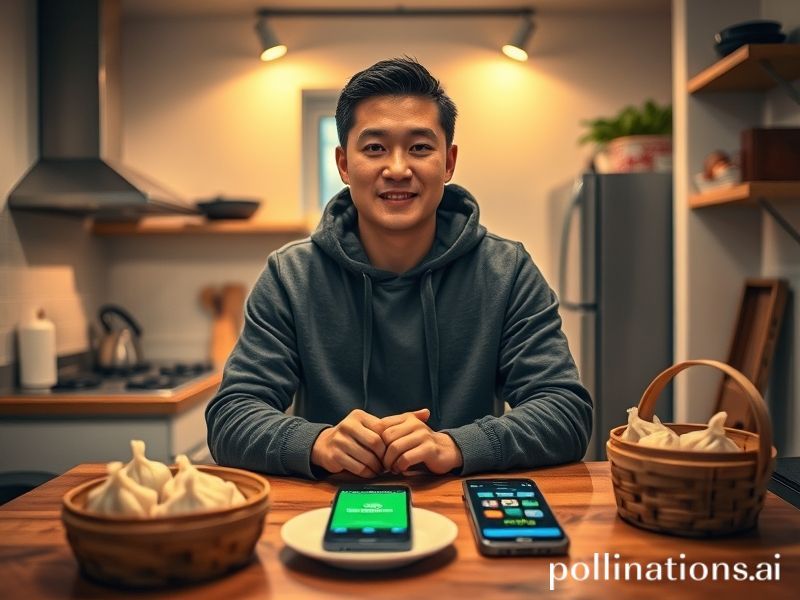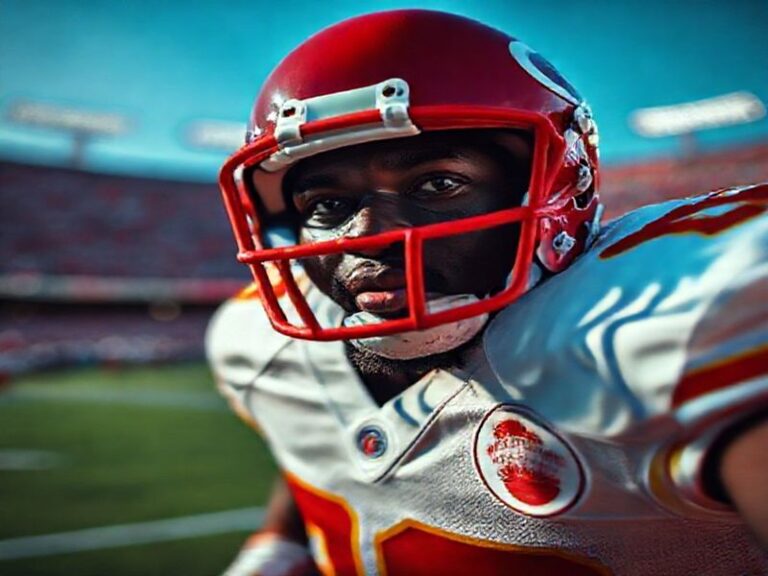Tony Xu: The Immigrant Who Outsmarted Hunger—And Added a Delivery Fee
The Man Who Fed the World—And Charged a Service Fee
While the rest of us spent the plague years perfecting banana bread and existential dread, Tony Xu was quietly turning the global food chain into a delivery chain. The 39-year-old co-founder and CEO of DoorDash (market cap: bigger than the GDP of Iceland) has spent the last decade persuading humanity that walking to the corner café is, in fact, a barbaric relic—right up there with rotary phones and the Geneva Conventions. From the vantage of a Parisian garret or a Singaporean hawker stall, his impact is no less revolutionary than the Suez Canal, only with slightly more plastic cutlery floating in its wake.
Born Xu Xun in Nanjing, Xu arrived in the United States at age five with two suitcases and one immigrant mother who washed dishes so he wouldn’t have to. A biographer might call this poetic symmetry; a cynic notes that he simply outsourced the washing-up to an app and added a 15 percent “small order” surcharge. Whatever the moral algebra, the numbers are unambiguous: DoorDash now operates in 30 countries, commands roughly 65 percent of the U.S. market, and has inspired copycats from Jakarta to Johannesburg. In São Paulo, a motorcyclist in a lurid pink iFood jacket dodges gunfire to bring you açaí; in Lagos, a Gokada rider weaves through perpetual gridlock with jollof rice balanced like the Olympic torch. All of them owe a quiet debt to Xu’s original insight: hunger is universal; dignity is negotiable.
Globally, the implications are deliciously dystopian. Entire city blocks have been re-engineered around the logistics of lukewarm burritos. Dark kitchens—windowless shipping containers wedged between highway ramps—now outnumber certain species of beetle. Meanwhile, the World Food Programme still struggles to reach famine zones, apparently lacking a sufficiently seductive onboarding bonus for drivers. If satire were edible, we’d have solved world hunger already.
Of course, Xu’s empire is not without its critics. European regulators, whose idea of a side hustle is a 32-hour workweek, have spent years wagging legislative fingers at the gig economy. California’s Prop 22 battle, an operetta of ballot initiatives and venture-capital tantrums, showcased the global debate in microcosm: are drivers employees with pensions and sick days, or merely freelance desperados hustling for tips? Xu’s stance—delivered with the calm of a man who has already cashed out $413 million in stock—leans toward “innovation,” which is tech-speak for “let’s not.” Across continents, labor courts scribble furiously while the algorithm hums, indifferent to borders or blood pressure.
Investors, with their usual Pavlovian enthusiasm, have rewarded DoorDash’s international expansion like toddlers discovering fries. The company’s IPO in December 2020 felt almost indecent: shares popped 86 percent on day one, as if the market were celebrating the end of human sociability itself. SoftBank, the Saudi-backed venture leviathan, keeps writing checks the size of small nations, presumably on the theory that if we’re all going to burn, we might as well do it with onion rings. Xu, meanwhile, has diversified into grocery, alcohol, pet supplies—anything, really, that can be commodified, shrink-wrapped, and tracked by GPS. The logical endpoint is a drone lowering Prozac and Pinot into your bunker while the oceans rise.
Yet for all the wry commentary, Xu’s story is also a mirror. The same technology that ferries truffle fries to a Manhattan loft can deliver medicine to an elderly widower in rural India. In the Philippines, where jeepney drivers pivoted en masse to food delivery after lockdowns obliterated tourism, DoorDash’s playbook provided a lifeline—albeit one with no health insurance attached. Progress, like the pad thai left outside your door, arrives lukewarm and slightly congealed, but it arrives.
So here we are: a planet where a boy who once shared one bowl of rice with his mother now decides, in some algorithmic sense, what a billion people have for dinner. The arc of history is long, but it bends toward convenience—fees may apply, tips appreciated. And if civilization ultimately collapses under the weight of its own packaging, well, at least the last courier will know exactly where to leave the receipt.







